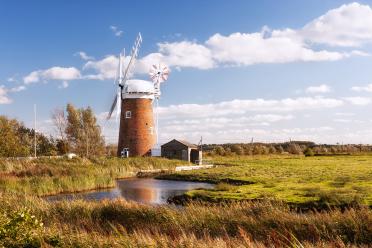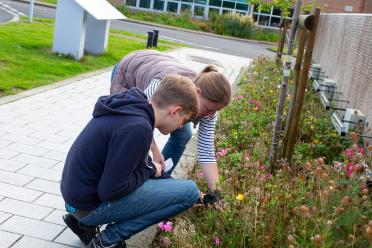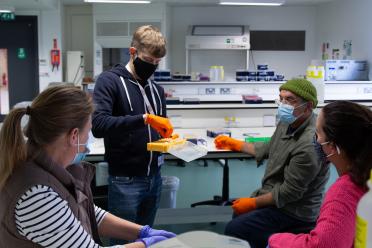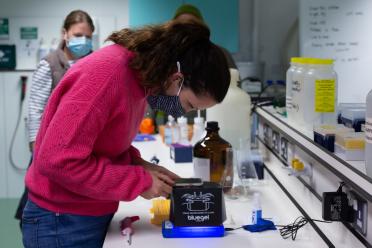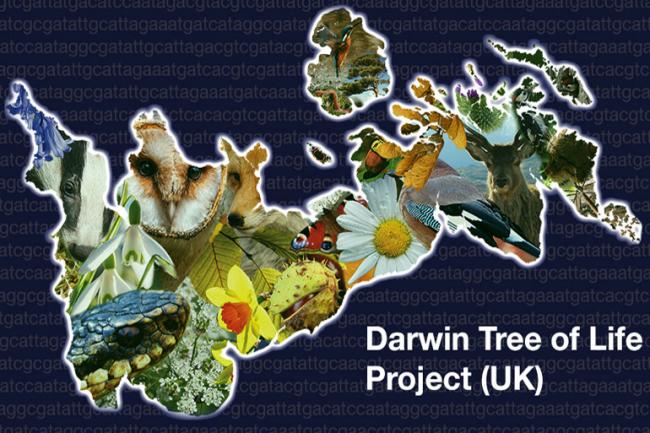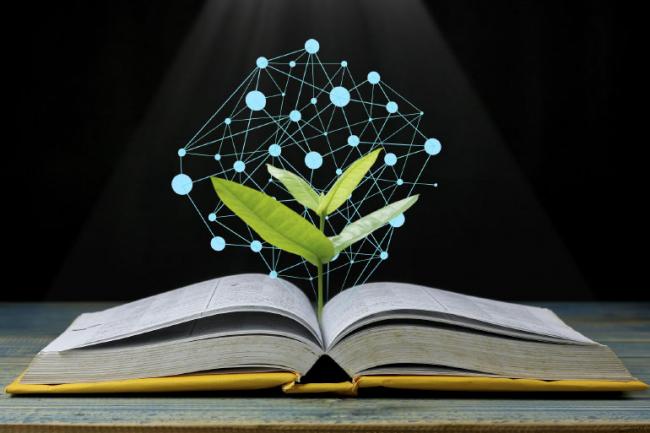The Barcoding the Broads activities are designed to extend a well-established DNA Barcoding protocol to DToL science involving local schools and nature groups with the study of a major region of ecological interest on their doorstep and a view to empowering communities to suggest research questions.
Primary audiences being regional stakeholder communities and less advantaged school groups across the UK. Participants will gain a practical understanding of what DNA is, how the genome sequences from DToL project can be used to protect and conserve biodiversity, and be empowered with an understanding of how their choices can make a positive contribution to lessen the global environmental crisis.
In partnership with the Cold Spring Harbor DNA Learning Centre (CSHL-DNALC), the Earlham Institute will work with teachers and students of KS3/4/5 from Norfolk schools in areas of multiple deprivation to develop and deliver DNA barcoding-based science projects linked to the biodiversity on their doorstep. The technique of DNA barcoding is integral to the DToL project, and provides a tested, hands-on activity to stimulate interest in fundamental questions such as ‘what are genomes, and why should we care about them?’ – helping to bring into focus the central role of genomics within the DToL project.
This activity is not just about knowledge; it is a wholesome, method-driven, evidence-based approach to increasing scientific fluency and long-lasting impact. We will use a ‘Train the Trainer’ model, ensuring the activity is self-sustaining and scalable, providing impact for years to come.
In parallel with the above programme, a second activity will engage local amateur expert groups. This will allow individuals with a demonstrated interest in biodiversity to deepen their understanding of, and participation in the scientific outcomes of the DToL project. Harnessing these sources of local knowledge will potentially feed samples directly into the DToL pipeline, strengthening the feedback loop between the project and the community. To complete this loop, we will facilitate cross-generational interactions between participants in these first two activities.
Finally, a simplified barcoding activity will be delivered to visitors of the Norfolk Broads Visitor Centre (an area of ecological special concern). This activity will allow engagement with a large number of people who visit natural areas, but who otherwise may never have the opportunity to view local biodiversity through a scientific lens.
These proposed community-driven projects will give us insights far beyond the documenting and sequencing of wildlife, and will provide measurable outcomes. It is true citizen science. All activities will be trialled in the Norfolk region. However, they can be run in any part of the country, and, if successful, will be shared with all interested DToL partners.
During activities with all audiences, the PE officer will survey specific audience subsets both qualitatively and quantitatively before, during and after the engagement, focused around behaviours and attitudes related to genomics, biodiversity and their importance. We would thoroughly evaluate the effect the activity has had on the way participants think about and approach science, putting into context what they have learned about the importance of genomics and biodiversity.
This project will contribute to the overall outcome for the participatory work strand by enhancing local networks of amateur naturalists, developing future scientists who would otherwise be lost, and helping to create a sustainable, positive change in the community’s attitude towards protecting, and advocating for the global environment.
